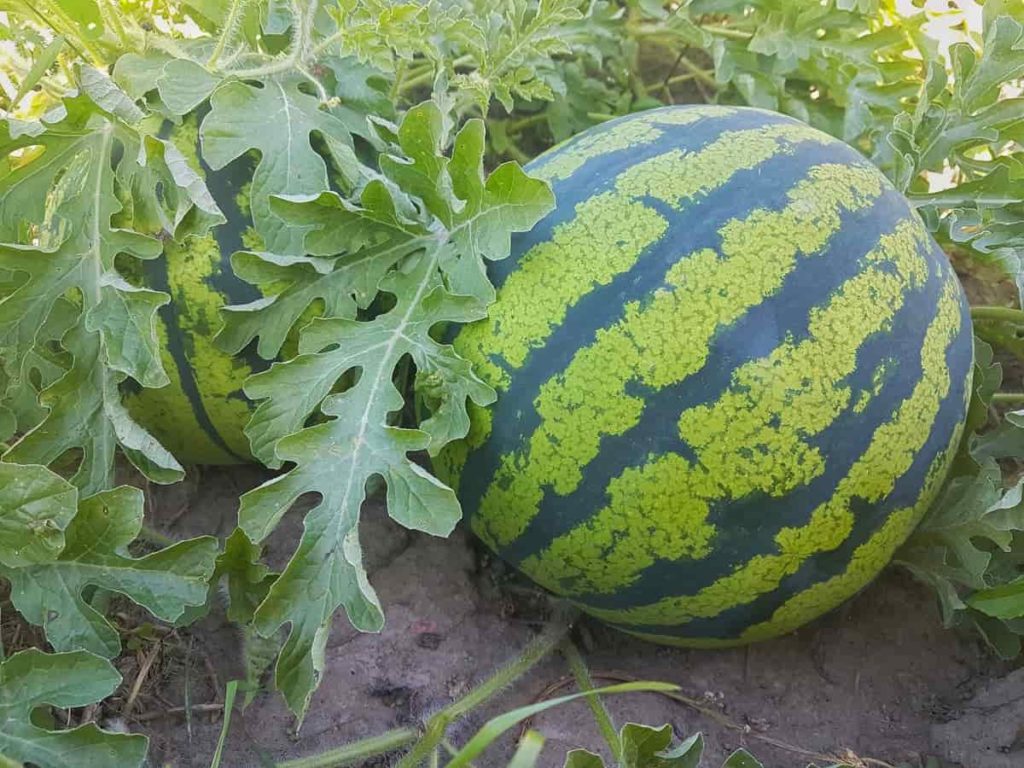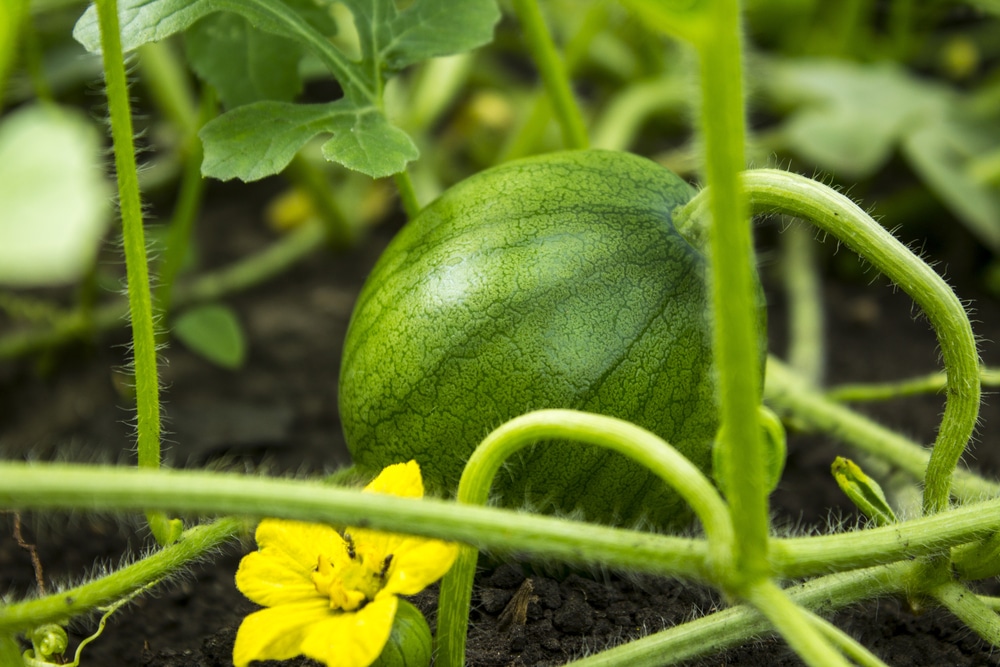The Ultimate Guide To Choosing The Best Fertilizer For Watermelons
The Ultimate Guide to Choosing the Best Fertilizer for Watermelons
Watermelons are a delicious and refreshing summer treat, but they can be tricky to grow. One of the most important factors in growing healthy watermelons is choosing the right fertilizer.
In this blog post, we will discuss the different types of fertilizer that are available for watermelons, as well as the best way to apply them. We will also provide some tips on how to choose the right fertilizer for your specific growing conditions.
What are the different types of fertilizer for watermelons?
There are two main types of fertilizer for watermelons: organic and synthetic.
- Organic fertilizers are made from natural materials, such as manure, compost, and fish emulsion. They are a good choice for organic gardeners, and they can help to improve the overall health of your soil.
- Synthetic fertilizers are made from chemicals, and they are typically more potent than organic fertilizers. They can be a good choice for gardeners who want to get a quick boost of nutrients, but they can also be harmful to the environment if not used properly.
Which type of fertilizer is best for watermelons?
The best type of fertilizer for watermelons depends on your individual growing conditions. If you are growing watermelons in a healthy soil, you may be able to get away with using a less potent organic fertilizer. However, if your soil is poor or sandy, you may need to use a more potent synthetic fertilizer.
How to apply fertilizer to watermelons
The best time to apply fertilizer to watermelons is when they are young seedlings. You can apply the fertilizer to the soil around the plant, or you can mix it into the soil before planting.
Once the watermelon plants have started to grow, you will need to fertilize them again every few weeks. The amount of fertilizer you need to use will depend on the type of fertilizer you are using, as well as the size of your plants.
Tips for choosing the right fertilizer for watermelons
- Consider your growing conditions. If you are growing watermelons in a poor soil, you will need to use a more potent fertilizer.
- Read the label carefully. Make sure to read the label on the fertilizer to see what nutrients it contains, as well as the recommended application rate.
- Start with a small amount. It is better to start with a small amount of fertilizer and then add more if needed, than to over-fertilize your plants.
- Water well after fertilizing. This will help the fertilizer to dissolve and be absorbed by the roots.
Conclusion
Choosing the right fertilizer for watermelons is essential for growing healthy and productive plants. By following the tips in this blog post, you can choose the right fertilizer for your specific growing conditions and help your watermelon plants thrive.
Watermelons are a delicious and refreshing summer treat, but they can be tricky to grow. One of the most important factors in growing a successful watermelon crop is fertilizer. The best fertilizer for watermelons will provide them with the nutrients they need to grow big, juicy fruits.
There are many different fertilizers on the market, so it can be difficult to know which one is right for your watermelon plants. If you're not sure where to start, I recommend visiting Garden Wiki. This website has a comprehensive guide to the best fertilizers for watermelons, as well as detailed instructions on how to apply them.
In addition to providing information about fertilizers, Garden Wiki also offers a wealth of other resources for watermelon growers. You'll find articles on topics such as planting, watering, and pest control. There's even a forum where you can ask questions and get advice from other watermelon growers.
So if you're serious about growing watermelons, I encourage you to visit Garden Wiki. It's the best place to find the information you need to grow a successful crop.
FAQ of best fertilizer for watermelon
1. What is the best fertilizer for watermelon plants?
There are many different fertilizers that can be used for watermelon plants, but some of the best include:
- Nitrogen-rich fertilizers: These fertilizers help to promote leaf growth and overall plant health. Some good options include blood meal, cottonseed meal, and fish emulsion.
- Phosphorus-rich fertilizers: These fertilizers help to promote flowering and fruiting. Some good options include bone meal and rock phosphate.
- Potassium-rich fertilizers: These fertilizers help to improve the overall health of the plant and the quality of the fruit. Some good options include greensand, kelp meal, and wood ash.
The best fertilizer for your watermelon plants will depend on the specific needs of your soil and climate. It is important to test your soil before fertilizing to determine what nutrients are lacking. You should also follow the directions on the fertilizer label carefully to avoid over-fertilizing your plants.
2. When should I fertilize my watermelon plants?
Watermelon plants should be fertilized every 2-4 weeks during the growing season. The first fertilizer application should be made when the plants are about 6 inches tall. The second application should be made about 2 weeks later, and subsequent applications should be made every 4 weeks.
It is important to water your plants thoroughly before fertilizing. This will help to prevent the fertilizer from burning the roots. You should also avoid fertilizing your plants during hot, dry weather.
3. How much fertilizer should I use for my watermelon plants?
The amount of fertilizer you need to use will depend on the size of your plants and the type of fertilizer you are using. It is always best to start with a small amount of fertilizer and then adjust as needed.
As a general rule, you should use about 1 pound of fertilizer per 100 square feet of garden space. If you are using a liquid fertilizer, you will need to dilute it according to the directions on the label.
4. What are the signs of over-fertilizing watermelon plants?
The signs of over-fertilizing watermelon plants include:
- Wilting leaves
- Stunted growth
- Yellowing leaves
- Leaf drop
- Poor fruit production
If you notice any of these signs, you should stop fertilizing your plants and water them thoroughly. You may also need to flush the soil with water to remove excess fertilizer.
5. What are the benefits of using organic fertilizer for watermelon plants?
Organic fertilizers are made from natural materials, such as manure, compost, and bone meal. They are slow-release fertilizers, which means that they release nutrients into the soil over time. This helps to prevent the plants from getting too much fertilizer at once.
Organic fertilizers also help to improve the overall health of the soil. They can help to increase the water-holding capacity of the soil, which can help to reduce the need for irrigation. They can also help to improve the drainage of the soil, which can help to prevent root rot.
Image of best fertilizer for watermelon
- Blood meal: This is a nitrogen-rich fertilizer that is made from dried blood. It is a good choice for watermelon plants because it helps to promote healthy growth and fruit production.

- Fish emulsion: This is a liquid fertilizer that is made from fish. It is a good source of nitrogen, phosphorus, and potassium, which are all essential nutrients for watermelon plants.

- Seaweed: This is a natural fertilizer that is made from seaweed. It is a good source of micronutrients, which are essential for plant health.

- Bone meal: This is a phosphorus-rich fertilizer that is made from ground bones. It is a good choice for watermelon plants because it helps to promote fruit production.

- Rock phosphate: This is a phosphorus-rich fertilizer that is made from rock. It is a good choice for watermelon plants because it is a slow-release fertilizer, which means that it will release nutrients over time.

Post a Comment for "The Ultimate Guide To Choosing The Best Fertilizer For Watermelons"